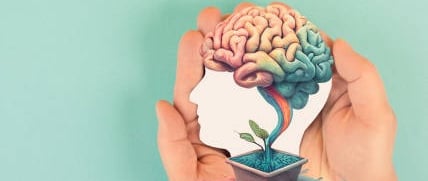Addiction as a Brain Disease: Understanding the Science of Dependency
For decades, addiction was often viewed as a moral failing or a lack of willpower. However, advances in neuroscience have reshaped our understanding, revealing that addiction is a chronic brain disease that affects brain structure and function. Recognizing addiction as a disease helps reduce stigma and guides effective treatment approaches.
All In Health
1/2/20253 min read
The Science Behind Addiction
Addiction is a complex brain disorder that fundamentally alters the way the brain processes reward, motivation, and self-control. While many people associate addiction with a lack of willpower, the reality is that addiction involves deep neurological changes that make stopping substance use extremely difficult without intervention.
At its core, addiction hijacks the brain’s reward system, primarily through the release of dopamine, a neurotransmitter that regulates pleasure, motivation, and reinforcement. When a person consumes substances like drugs or alcohol, dopamine is released in unnaturally high amounts, creating an intense feeling of euphoria. The brain then learns to associate the substance with pleasure, reinforcing the urge to use it again.
How Addiction Rewires the Brain
Repeated substance use leads to long-lasting changes in brain circuits that control decision-making, impulse control, and emotional regulation. These changes make it difficult to stop using, even in the face of severe consequences.
Tolerance and Dependence – Over time, the brain adapts to excessive dopamine levels by reducing natural dopamine production. This means individuals need to consume more of the substance to feel the same effects, leading to tolerance. When the substance is absent, the brain struggles to produce enough dopamine on its own, causing withdrawal symptoms and dependence.
Compulsion and Loss of Control – The brain's ability to resist cravings becomes weakened, making substance use feel like an uncontrollable urge rather than a choice. Even when individuals want to quit, their brain’s wiring makes it incredibly difficult.
Triggers and Cravings – Environmental cues (such as places, people, or emotions associated with past substance use) can activate intense cravings. These cravings are due to learned associations in the brain, making relapse a significant challenge.


Key Brain Areas Affected by Addiction
Understanding the specific brain regions impacted by addiction can help explain why it is so difficult to break free without treatment.
The Prefrontal Cortex (Decision-Making & Impulse Control)
This part of the brain is responsible for reasoning, impulse control, and long-term planning.
Addiction weakens this region, leading to poor decision-making, impaired judgment, and an inability to resist cravings.
The Amygdala (Emotional Processing & Stress Response.
The amygdala regulates emotions such as fear, anxiety, and stress.
Substance use can increase emotional instability, leading to heightened anxiety, mood swings, and an increased risk of relapse when faced with stress or emotional distress.
The Basal Ganglia (Habit Formation & Motivation)
This region is involved in pleasure, motivation, and the formation of habits.
Drug use hijacks this system, making substance use feel automatic and reinforcing addictive behaviors.


Why Viewing Addiction as a Disease Matters
Recognizing addiction as a chronic disease rather than a moral failing has crucial implications:
Reduces Stigma – Many people struggling with addiction avoid seeking help due to shame and judgment. Viewing addiction as a disease encourages a compassionate approach rather than blame.
Promotes Effective Treatment – Like other medical conditions (e.g., diabetes, heart disease), addiction requires proper treatment rather than punishment. Medication, therapy, and behavioral interventions are far more effective than relying on willpower alone.
Encourages Long-Term Support – Addiction is a relapsing disorder, meaning individuals need ongoing management and care, just like with other chronic diseases. Long-term recovery plans, including therapy, lifestyle changes, and peer support, increase the likelihood of lasting sobriety.
Final Thoughts
Addiction is a brain disease, not a lack of willpower. Recovery is possible with the right treatment, support, and lifestyle changes. By understanding how addiction affects the brain, individuals and their loved ones can approach recovery with compassion, knowledge, and an effective plan for long-term success. If you or a loved one is struggling, seeking help is the first step toward healing. Don’t hesitate to reach out for support—recovery is within reach.
National Institute on Drug Abuse (NIDA): https://www.drugabuse.gov
Substance Abuse and Mental Health Services Administration (SAMHSA): https://www.samhsa.gov


